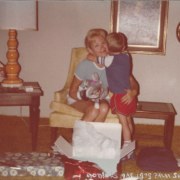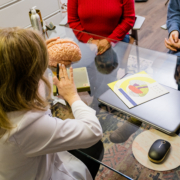What Tony Bennett taught us about life with dementia
It was difficult to find people who didn’t like Tony Bennett.
Sure, they appreciated his mellifluous voice—the crooner entertained us for more than 70 of his 96 years. But what stood out most about Bennett was his charisma and his zest for life.
Naturally, then, his death earlier this month sent shockwaves through several different communities. Considering that the New York native had been living with Alzheimer’s Disease since his diagnosis in 2016, the neuropsychology community was one of those that mourned him the most.
Bennett stood out to neuropsychologists for how he managed to live with Alzheimer’s Disease, the most common form of age-related dementia. At a time when Alzheimer’s was being stigmatized, Bennett and his family leaned into the diagnosis, acknowledging the truth and forging ahead with life, music, and whatever else made Bennett happy — until he simply couldn’t do it anymore.
(For example, Bennett collaborated with Lada Gaga on the “Love for Sale” album in 2021.)
An AARP magazine article published in 2021 quoted Bennett’s doctor as saying the singer should be seen as an inspiration to all families with loved ones who are diagnosed with Alzheimer’s Disease late in life.
“He’s doing so many things at 94 that so many people without dementia can’t do,” said Dr. Gayatri Devi, the neurologist who diagnosed Bennett. “He really is the symbol of hope for someone with a cognitive disorder.”
More recently, Dr. Bill Perry, executive director of the National Academy of Neuropsychology (NAN), agreed.
In the days following Bennett’s death, Perry waxed poetic about what the singer meant to the neuropsychologists and those who study brain health.
“One of the amazing things about Tony Bennett was his willingness to be open about his disease,” said Perry, who also is a professor in the department of psychiatry at the University of California, San Diego. “When people of fame like Mr. Bennett are willing to make their diagnosis and experience public, it helps to diminish the stigma that is associated with having a diagnosis of dementia.”
Neuropsychologists and neurologists say a strong support system of loved ones is key to helping patients with Alzheimer’s Disease thrive. Devi, Bennett’s doctor, told AARP this was the case with Bennett, as well.
Devi told AARP that in addition to Bennett taking the standard Alzheimer’s medications (cholinesterase inhibitors that regulate the concentration of the brain’s chemical messengers for normal memory function) and his regimen of diet and exercise, the singer’s continued high functioning and well-being was directly attributable to his strong family support.
“I [was] humbled by the level of devotion,” Devi was quoted as saying. She added that constant interaction with his wife and kids helped stimulate Bennett’s brain, which undoubtedly prolonged his life.
Bennett’s experience with dementia can and should be a lesson for all of us—when one of our loved ones is diagnosed with Alzheimer’s Disease, we must show up for them as we did before their diagnosis and put them in a position to thrive in their final years.
We’ll always remember Tony Bennett’s voice and music. We must remember his heart and spirit, too.









